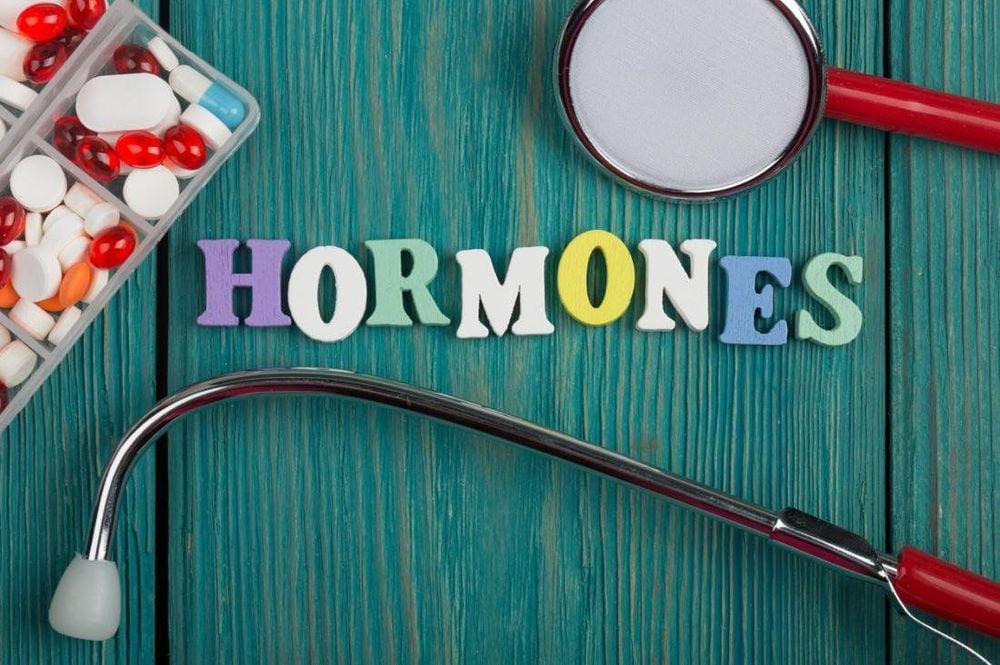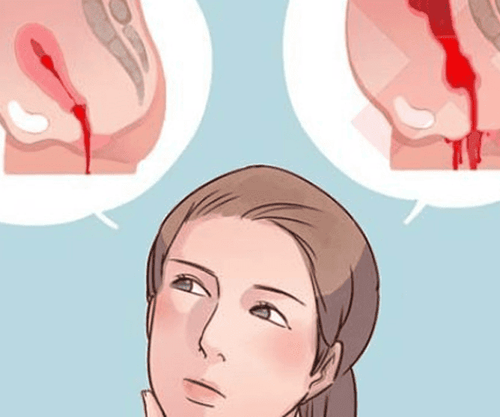This is an automatically translated article.
The article was professionally consulted by Specialist Doctor I Tran Thi Phuong Loan - Obstetrician and Gynecologist - Department of Obstetrics and Gynecology - Vinmec Phu Quoc International General Hospital.Women's periods often change after childbirth, such as feeling heavier or more painful, while others find their periods lighter. Postpartum periods are usually irregular but can return to normal over time. The following article will explain why there are menstrual disorders after giving birth?
1. Is the postpartum period regular?
Childbirth is a major trauma to a woman's body and takes time to heal. There is currently no definition of a "standard" postpartum period, but usually the first period will be different than before pregnancy.There are many reasons why menstruation may change after childbirth, including:
It takes time for the uterus to return to its normal size Hormone levels change Breastfeeding affects hormone levels Some women Women notice that their periods are heavier after giving birth. Others notice a different color of blood, more clots than usual, or more intense cramps.
According to experts, most women will notice their periods return to "normal" over time, which can mean about the same as they were before pregnancy.
In women who do not breastfeed or breastfeed irregularly, menstruation tends to return more quickly.
A 2011 analysis of six previous studies found that most women had their first period between 45 and 94 days after giving birth. One study in the review found that the average first period occurred 74 days postpartum.

Sau khi sinh con có thể dẫn tới mức độ hormone thay đổi khiến kinh nguyệt không đều
Especially in the months immediately after giving birth, irregular menstruation often occurs. Women who are breastfeeding are more likely to experience irregular periods, as the hormones that support breastfeeding can cause the body to delay ovulation or ovulate infrequently.
Even in non-breastfeeding women, periods can be irregular, as the body needs time to recover from pregnancy and childbirth.
Over time, your period should return to normal. However, some women may have irregular periods before becoming pregnant, such as those with polycystic ovary syndrome (PCOS) or endometriosis.
If women are concerned about irregular periods after giving birth, it is best for them to talk to their doctor to find out the cause so that it can be treated.
2. Why does breastfeeding lead to no period?

Cho con bú là nguyên dân dẫn đến chậm kinh
When your baby is born, you are already equipped with the natural nutrients needed for breastfeeding. Unless you are unable to breastfeed, doctors always encourage mothers to breastfeed as soon as possible. This is generally considered the safest and healthiest source of nutrition for infants.
While it may seem like breast milk simply appears when your baby is born, there are actually many factors that influence lactation. In fact, just like the hormones that help you get pregnant, they are also responsible for breastfeeding. Prolactin is the main hormone responsible for the production of breast milk. It is produced by the pituitary gland, located in the brain.
Prolactin also works to slow down menstruation. Breastfeeding keeps these hormone levels high, so the longer you breastfeed, the more likely you are to miss or not have your period. On the other hand, once you've weaned your baby, your periods will likely return relatively quickly afterward.

Cai sữa mẹ cho bé kinh nguyệt có thể sẽ trở lại tương đối nhanh chóng
If you get your period while breastfeeding, you may also notice other unexpected changes. For example, you may find that your baby doesn't care about feeding times and eats less during her period. This is thought to be related to the change in taste in milk.
Or maybe vice versa. Since prolactin controls milk production, the amount of milk decreases during your period, which means your baby may want to feed more often.
There is no specific timeline for normal menstrual cycle return as every woman is different. Chances are, if you were fairly regular before getting pregnant, your periods will return to normal quickly once you stop breastfeeding.
According to experts, the time frame for normalization phases of postpartum menstruation is from six months to two years.
It is also important to note that not having a period does not necessarily mean not ovulating. Some women think they can't get pregnant while breastfeeding if they don't get their period. It is also the leading cause of unexpected pregnancy in nursing mothers.
While not entirely impossible, getting pregnant can be more difficult while breastfeeding. Remember that prolactin is responsible for both milk production and aiding pregnancy. It can be difficult for the body to support both at the same time. If you want to get pregnant at this point, talk to your doctor about your options.
3. Postpartum fluid

Sản dịch
Over several days or weeks, the blood will lighten, eventually turning pink, brown, and clear.
It is common for women to experience menstrual cramps with discharge because the uterus is contracting to return to its normal size.
The discharge is not blood during menstruation. It is a sign that the body is still recovering from childbirth, as the lining of the uterus sheds.
According to the 2012 studies, bleeding from the discharge lasts from 24 to 36 days. However, in only one study that followed participants until the bleeding stopped, the results showed that postpartum bleeding continued for at least 3 to 5 weeks, but possibly longer.
You can mistake discharge for menstruation or vice versa. While both discharge and menstruation begin with bright red blood, discharge tends to become lighter in color over the course of a few days, while menstrual blood will darken over time.
4.Using birth control after giving birth

Nên sử dụng bao cao su tránh sử dụng biện pháp tránh thai có chứa nội tiết tố
Women who want to avoid using hormonal contraception may consider using a condom, a diaphragm, a non-hormonal intrauterine device (IUD), or other methods of contraception. fertility monitoring.
Hormonal birth control methods can help regulate menstruation in the postpartum period. These methods include estrogen and progestin or progestin-only pills, as well as hormonal, injected, or implanted IUDs.
Some birth control options can stop a woman's periods or cause her periods to be less frequent. Your doctor may recommend these options for women who experience heavy or heavy menstrual bleeding.
Women who are breastfeeding may be concerned about the effect of birth control on their baby or their ability to produce breast milk.
A 2012 study compared two different birth control pills - the combination pill and the progestin-only pill, and found no significant difference in breastfeeding or milk production.
Although hormonal birth control is safe to use while breastfeeding, a mother should still talk to her doctor about any new medication before starting it.
When to see a doctor?
After giving birth, your doctor or midwife should advise on warning signs of danger. Normal bleeding patterns vary widely, depending on the method of delivery, a woman's medical history, and other individual factors.
You need to go to a medical facility immediately if you experience the following signs:
Very heavy bleeding, soaked in a tampon within an hour Bleeding with fever Severe cramps Blood clots larger than fruit Golf ball At the Department of Obstetrics and Gynecology - Vinmec International General Hospital with a team of experienced obstetricians and gynecologists is a prestigious address for you to visit and dispel worries about abnormal postpartum menstrual status in particular. , as well as general gynecological problems. For comprehensive health care and advice, you can refer to the basic gynecological screening package.
Doctor Tran Thi Phuong Loan was former Head of Obstetrics and Gynecology Department, An Giang Central General Hospital; Doctor treated at Hoang Anh Gia Lai University of Medicine and Pharmacy Hospital before working as an Obstetrician and Gynecologist at Vinmec Phu Quoc International General Hospital as it is now.
Customers can directly go to Vinmec Health system nationwide to visit and book an appointment through the website to be served.
Please dial HOTLINE for more information or register for an appointment HERE. Download MyVinmec app to make appointments faster and to manage your bookings easily.
References: parents.com, medicalnewstoday.com













